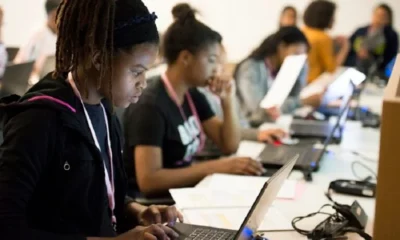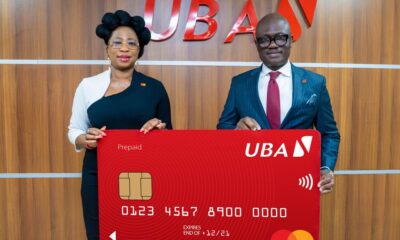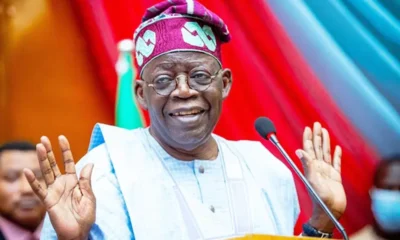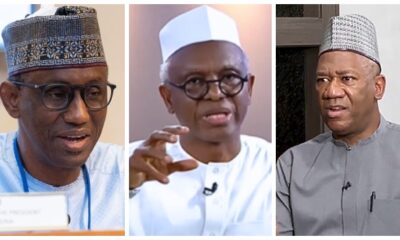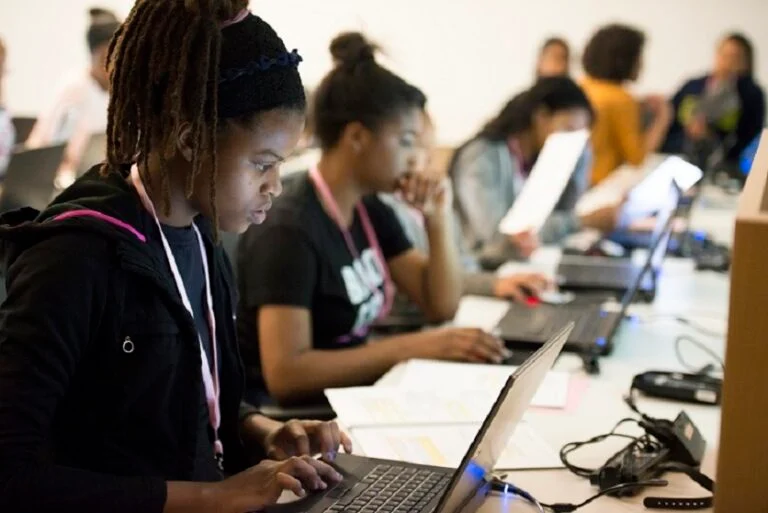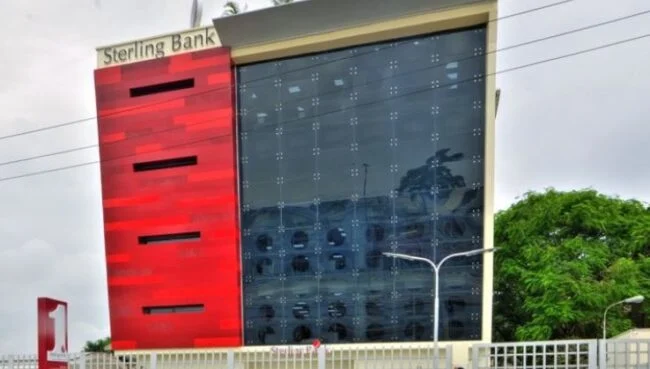Following the resignation of the All Progressives Congress National Chairman, Umar Ganduje, on Friday, the North-Central zone has expressed interest in taking over the position.
Ganduje’s departure has stirred political activity, with key figures from Kogi, Benue, Nasarawa, and other North-Central states urging that the chairmanship be returned to their region.
Though there’s no formal declaration yet, insiders revealed that Ganduje, the former Kano State governor, had faced increasing pressure from North-Central stakeholders, who have long demanded that the chairmanship revert to their zone.
Ganduje assumed the APC chairmanship in August 2023 after Senator Abdullahi Adamu from the North-Central stepped down. His emergence triggered discontent among many party loyalists from that region.
Currently, the APC Deputy National Chairman (North), Bukar Dalori, has stepped in as acting chairman and will oversee the party’s operations until December.
Meanwhile, both APC factions in Benue State are pushing for the chairmanship to be zoned back to the North-Central.
Daniel Ihomun, the state publicity secretary of the Austin Agada-led faction aligned with the Secretary to the Government of the Federation, George Akume, argued that “the national chairmanship of APC was originally zoned to the North-Central,” referencing Adamu’s earlier appointment, and emphasized that the party leadership would make a decision after the President’s return.
Similarly, James Orgunga, spokesman for the faction loyal to Governor Hyacinth Alia, affirmed that North-Central should retain the chairmanship under the APC’s zoning policy.
In Nasarawa State, APC stakeholders and the All Progressives Congress Forum have urged the party to consider former governor Tanko Al-Makura for the chairmanship.
In a statement issued on Sunday in Abuja, Forum Chairman Alhaji Saleh Zazzaga said Al-Makura’s endorsement followed wide-ranging consultations among North-Central APC stakeholders.
Titled “Why Al-Makura Deserves to be APC National Chairman,” the statement emphasized his roots in Nasarawa — the same state as ex-chairman Adamu — and came shortly after the North-Central APC Forum demanded the chairmanship return to the region.
The statement recalled that the North-Central was allocated the chairmanship under the party’s zoning plan, which led to Adamu’s emergence in March 2022 before his resignation in July 2023, followed by Ganduje’s appointment in August.
“After extensive deliberations among stakeholders in the North-Central region, the North-Central APC Forum has decided to endorse Senator Tanko Al-Makura for the position of APC National Chairman,” the statement read.
“This is in furtherance of our demand that the position of National Chairman should return to the North-Central in line with the APC’s zoning arrangement.”
In support, Kogi APC Chairman Abdullah Bello said he would welcome the development if the position is zoned to the North-Central, though final decisions rest with the President and the Central Working Committee.
“It’s not a question about whether or not I support the calls, of course, I will be happy if the zone gets it, but it’s not for me as the state chairman to decide,” he said.
Kwara State APC Chairman Sunday Fagbemi also stated that the selection of a new national chairman should be left to the party’s National Working Committee, saying, “They know what is good for the party and what will bring peace and stability to the party.”
North West
Kaduna State APC Chairman Air Commodore Emmanuel Jekada (retd.) noted that although the party constitution provides direction, the ultimate decision lies with party leaders.
“It’s not for me to decide. I think the leader of the party decides. He is the one who knows where he thinks it will work for him. If they want to follow the Constitution, it’s there in the Constitution. But that doesn’t prevent the leaders from deciding, because sometimes, you are the one wearing the shoes, and you alone will know where it pinches you,” he said.
Sokoto APC Chairman Isa Achida stated that his chapter aligns with the national party’s decisions, saying, “Anywhere the chairman is zoned to, we would support, we are for the party and nothing more.”
Kebbi APC leaders also voiced their support for whatever decision the party leadership makes, with one chieftain confirming that no formal discussion had taken place on the matter.
In Zamfara, the party expressed readiness to respect the national secretariat’s decision. APC Publicity Secretary Yusuf Idris said they were displeased with Ganduje’s resignation but would accept whoever is chosen, so long as the person fosters peace and unity.
“We are ready to accept whoever is going to succeed him as our new leader, provided that such a person would use his position to promote peaceful coexistence and progress within the party.”
In Kano, APC chieftain Alhaji Alhassan Yaryasa praised Ganduje for stepping down, claiming it was a wise move.
He alleged there was pressure from the Presidency to replace Ganduje and potentially bring in Senator Rabi’u Kwankwaso as President Tinubu’s 2027 running mate.
“We knew there was a plan to bring Senator Rabi’u Kwankwaso into the APC and possibly be running mate of President Bola Tinubu in 2027. Whatever the case may be, the decision taken by Ganduje to resign is the best option for him before they disgrace him out of office,” he said.
Yaryasa, who once coordinated the Tinubu Campaign in Kano South, praised Ganduje’s role in strengthening the party and attracting defectors, urging that he be allowed to exit with dignity.
“Don’t forget Ganduje was able to bring key politicians from other parties into the APC, such as senators and Reps members who recently defected from other parties and joined the APC. So, he should leave the position honourably before they force him to resign and disgrace him.”
He added that while it’s important for the party to follow due process in selecting a new chairman, “whichever zone is supposed to produce the national chairman of the party should be given the chance to do so.”
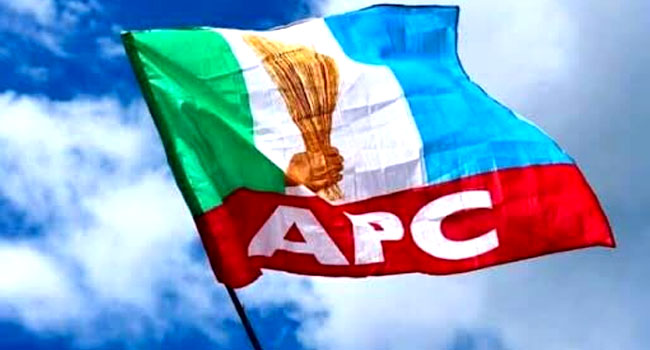

 BIG STORY3 days ago
BIG STORY3 days ago
 BIG STORY3 days ago
BIG STORY3 days ago
 BIG STORY14 hours ago
BIG STORY14 hours ago
 BIG STORY10 hours ago
BIG STORY10 hours ago
 BIG STORY3 days ago
BIG STORY3 days ago
 BIG STORY3 days ago
BIG STORY3 days ago
 BIG STORY1 day ago
BIG STORY1 day ago
 BIG STORY2 days ago
BIG STORY2 days ago






